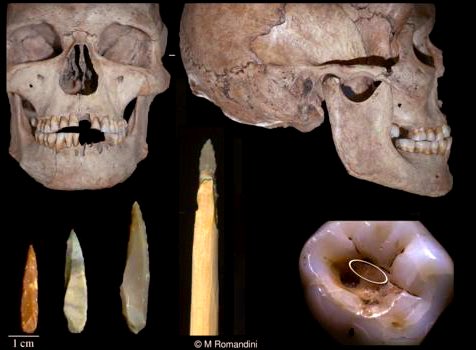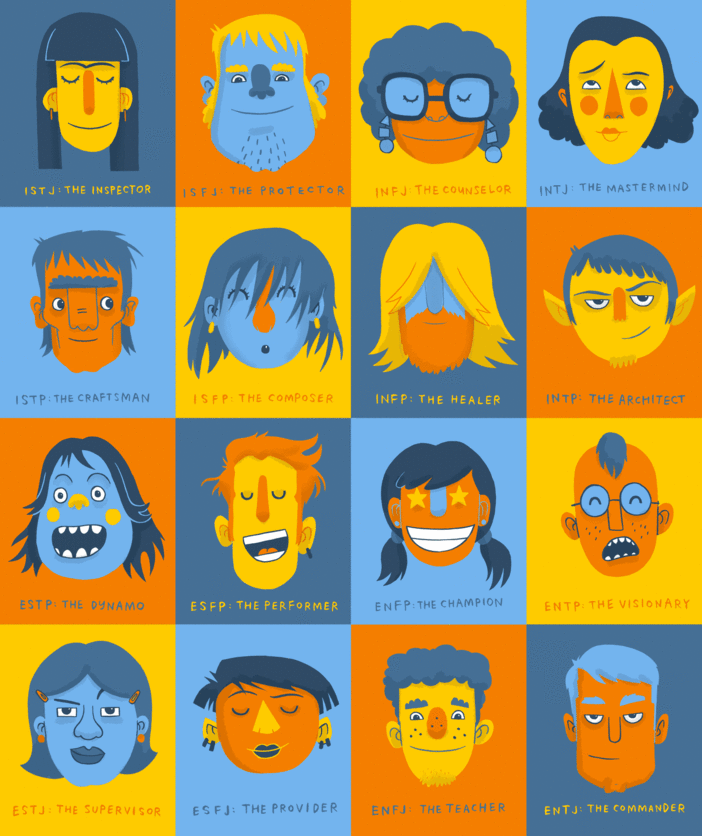
Assistant professor @DukePsychNeuro studying kids & culture. Director of the @DukeMACLab. Mom x3. Some people just want to watch the world learn.
7 subscribers
How to get URL link on X (Twitter) App

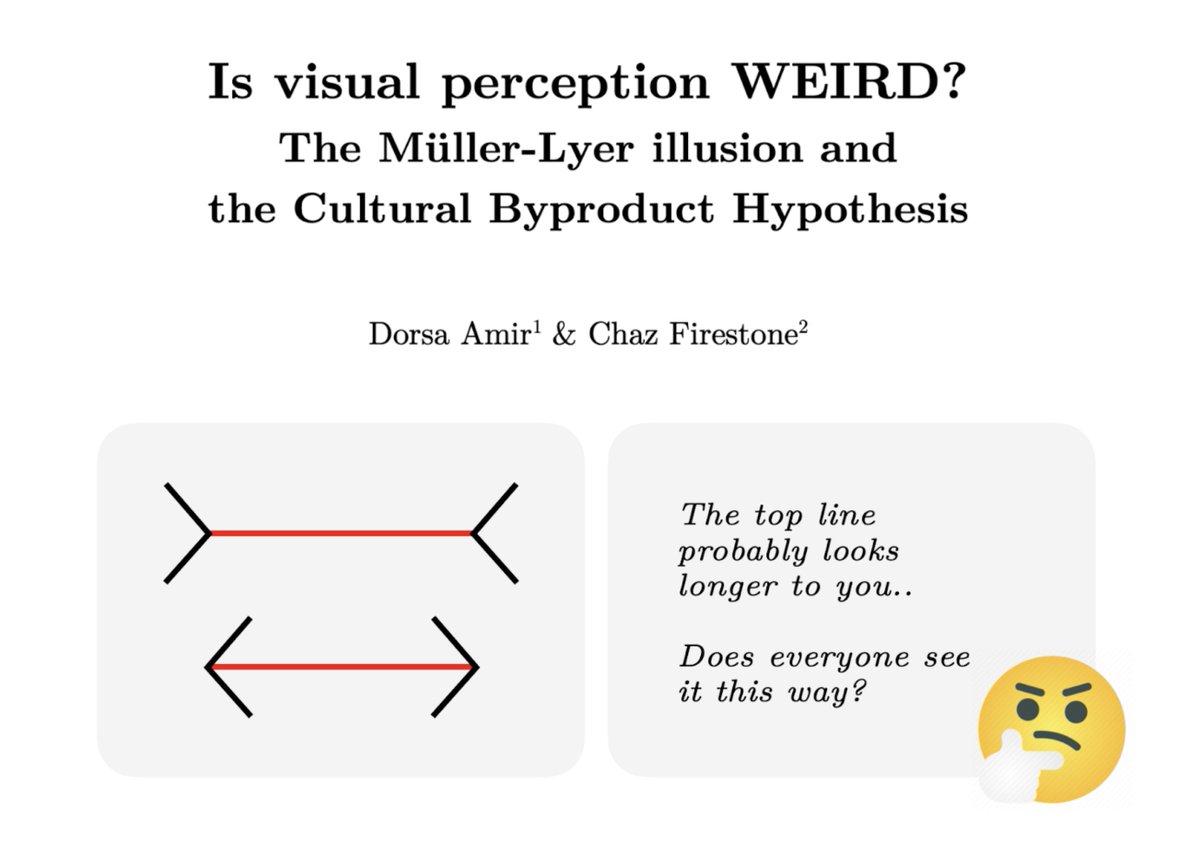
 The ML illusion has puzzled scientists since the 1800s. The lines are equal, but the top one just SEEMS longer, no? Not long after its discovery, though, some argued that maybe the illusion wasn't obvious to everyone. Maybe it had to do with the culture you were raised in. (2/13)
The ML illusion has puzzled scientists since the 1800s. The lines are equal, but the top one just SEEMS longer, no? Not long after its discovery, though, some argued that maybe the illusion wasn't obvious to everyone. Maybe it had to do with the culture you were raised in. (2/13) 

 First up: pain! My god, the pain. Usually in the back, knees, & ankles. These are some of the most common health issues & bipedalism is largely to blame. Walking upright places extra stress on our poor bodies, which are constantly aching under the strain & weight. (2/7)
First up: pain! My god, the pain. Usually in the back, knees, & ankles. These are some of the most common health issues & bipedalism is largely to blame. Walking upright places extra stress on our poor bodies, which are constantly aching under the strain & weight. (2/7) 

 Some background. It's 1952. Mosaddegh is the democratically-elected leader of Iran. Iran's oil is largely controlled by foreign interests. Mosaddegh fights back & dares to nationalize the Iranian oil industry. The West is angry; they organize a coup. 2/ npr.org/2019/01/31/690…
Some background. It's 1952. Mosaddegh is the democratically-elected leader of Iran. Iran's oil is largely controlled by foreign interests. Mosaddegh fights back & dares to nationalize the Iranian oil industry. The West is angry; they organize a coup. 2/ npr.org/2019/01/31/690…

 One common mistake is to clutter the slide with lots of text, which the speaker reads out to the audience, verbatim. This is a bit boring and inefficient. Condense down the text to the main question or point of the slide, and speak the rest. Scary, maybe, but you can do it! 2/
One common mistake is to clutter the slide with lots of text, which the speaker reads out to the audience, verbatim. This is a bit boring and inefficient. Condense down the text to the main question or point of the slide, and speak the rest. Scary, maybe, but you can do it! 2/ 

https://twitter.com/dranthonygustin/status/1506996684756193280First of all, the trope that hunter-gatherers are "wild humans" is flawed, harmful, & condescending, and the idea that they have "full genetic expression" is literally so stupid I don't even know where to start. They're.. expressing more genes than us? 2/
https://twitter.com/dranthonygustin/status/1506996687977398280?s=20&t=XimiWU3KjFZXwLTLnvDJ7w


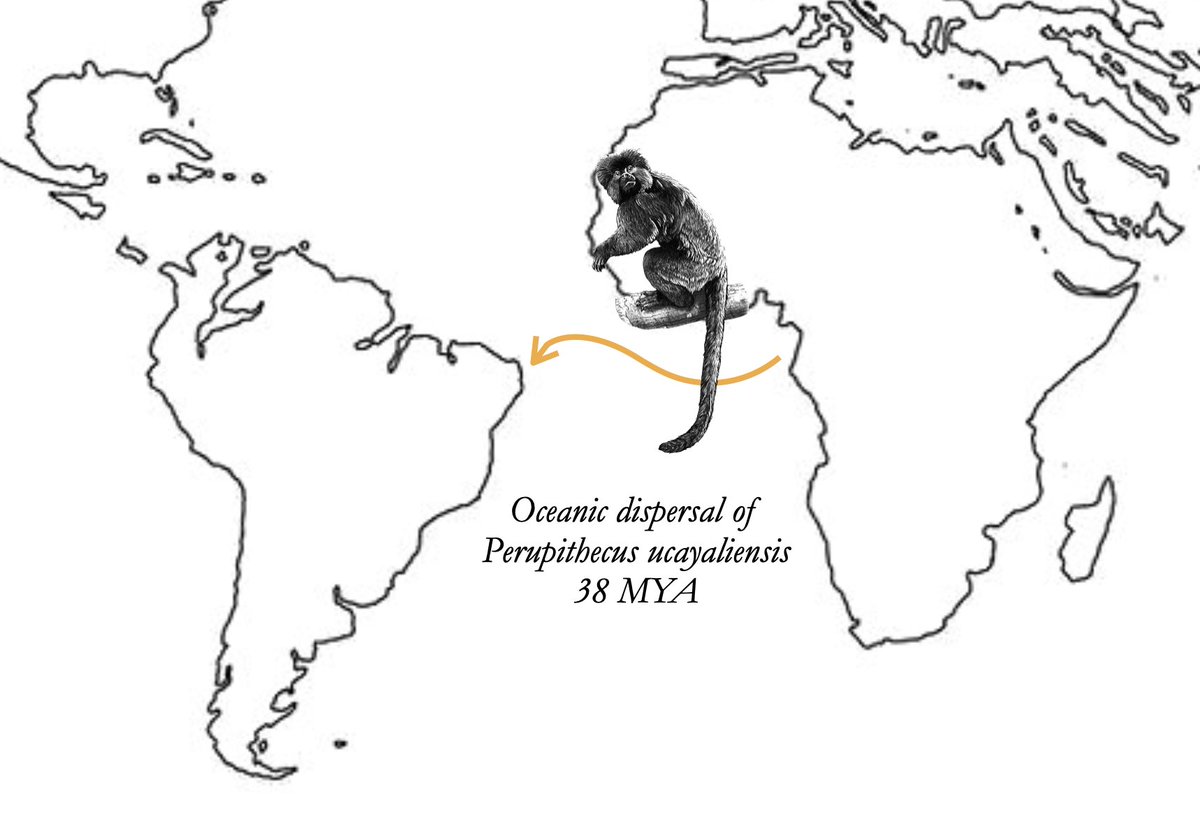
 So, how did the monkeys pull this off? Well, what happened is called a "rafting event": a piece of earth breaks off, with its flora & fauna intact, & essentially turns into a small floating island. In the Oligocene, the continents were closer, so the journey was shorter. (2/5)
So, how did the monkeys pull this off? Well, what happened is called a "rafting event": a piece of earth breaks off, with its flora & fauna intact, & essentially turns into a small floating island. In the Oligocene, the continents were closer, so the journey was shorter. (2/5)



 Variations of five-finger counting exist all around the globe, and between languages, as well. The Pekai-Alue in Papua New Guinea are notable in that the folded, rather than the extended, fingers are the ones counted. (2/8)
Variations of five-finger counting exist all around the globe, and between languages, as well. The Pekai-Alue in Papua New Guinea are notable in that the folded, rather than the extended, fingers are the ones counted. (2/8) 

 (2) First, as you can imagine, early surgery was absolutely awful & almost always a last resort. One thing I didn’t realize was that back then, the best surgeons were the *fastest* surgeons — for instance, Robert Liston could remove a leg in less than thirty seconds (!).
(2) First, as you can imagine, early surgery was absolutely awful & almost always a last resort. One thing I didn’t realize was that back then, the best surgeons were the *fastest* surgeons — for instance, Robert Liston could remove a leg in less than thirty seconds (!).
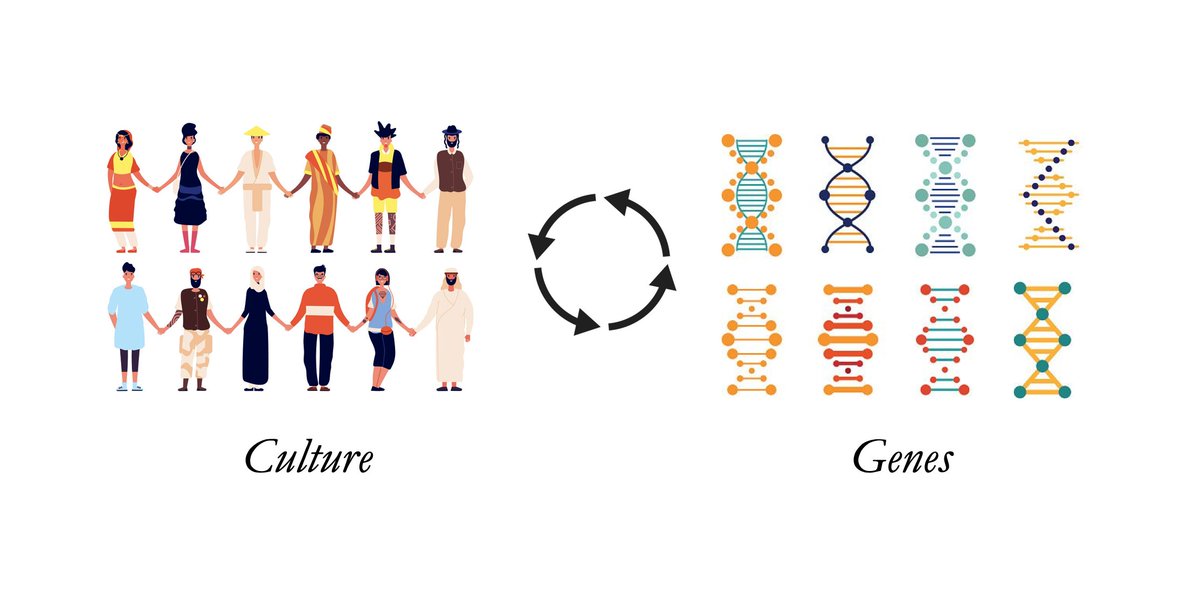
 The classic example is “lactase persistence”. Most mammals can break down the sugar in milk — lactose — using an enzyme called lactase. But, in most species, this enzyme goes away around the time they stop nursing. Why is it that a third of adult humans can still digest milk? 2/
The classic example is “lactase persistence”. Most mammals can break down the sugar in milk — lactose — using an enzyme called lactase. But, in most species, this enzyme goes away around the time they stop nursing. Why is it that a third of adult humans can still digest milk? 2/ 





